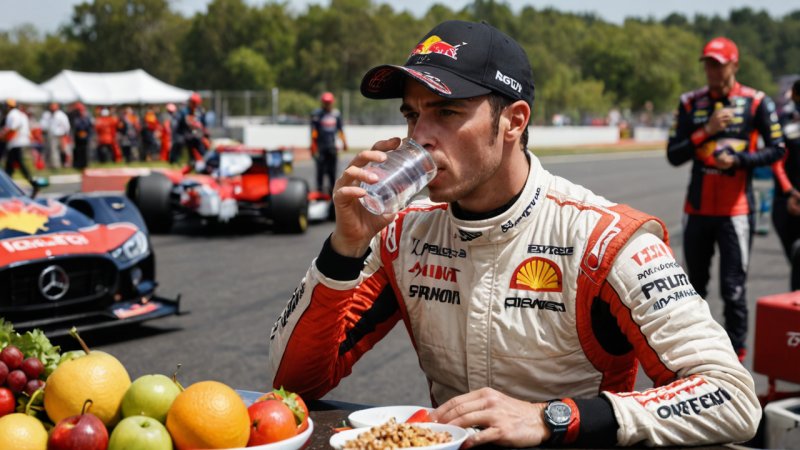In the high-octane world of motorsports, every split second counts, and athletes are constantly seeking ways to enhance their performance. While rigorous training and cutting-edge technology play essential roles, one often-overlooked factor is nutrition. The right dietary choices can significantly affect an athlete's endurance, focus, and recovery time, making it crucial for motorsport competitors to understand how to fuel their bodies effectively. Here are five key elements of nutrition that can lead to peak performance on the track.
- Hydration: The Foundation of Performance
One of the most critical aspects of nutrition in motorsports is hydration. During races, drivers can lose significant amounts of fluid through sweat, which can impair performance and concentration. Maintaining optimal hydration levels is essential for muscle function and cognitive abilities. Here are some tips for effective hydration:
- Start hydrating days before a race.
- Monitor urine color to gauge hydration levels.
- Incorporate electrolyte-rich drinks during long races.
- Carbohydrates: The Energy Source
Carbohydrates are the primary fuel source for high-intensity activities, making them vital for motorsport athletes. Consuming an adequate amount of carbs ensures that drivers have the energy they need to maintain peak performance throughout the race. Here's how to incorporate carbs effectively:
- Focus on complex carbohydrates like whole grains, fruits, and vegetables.
- Timing is essential; consume carbs before and during the race for sustained energy.
- Experiment with carb gels or bars during training to find what works best.
- Proteins: Essential for Recovery
After the adrenaline of a race, recovery becomes paramount. Proteins play a critical role in repairing muscles and restoring energy levels. Motorsport athletes should consider the following when it comes to protein intake:
- Include lean protein sources such as chicken, fish, beans, and legumes in meals.
- Consume protein-rich snacks post-race to support muscle recovery.
- Aim for a balanced protein intake throughout the day, not just before or after races.
- Micronutrients: The Unsung Heroes
Vitamins and minerals are essential for overall health and performance but are often overlooked in an athlete's diet. These micronutrients support various bodily functions and can impact performance. To ensure adequate micronutrient intake, consider:
- Eating a diverse diet rich in fruits, vegetables, and whole foods.
- Paying attention to specific vitamins and minerals like Vitamin D, calcium, and iron, which are crucial for energy and bone health.
- Considering a multivitamin if dietary intake is insufficient.
- Meal Timing: Strategizing for Success
In motorsports, meal timing can be as important as what is consumed. Proper timing can help manage energy levels and optimize performance. Here are some strategies:
- Eat a balanced meal 3-4 hours before the race to ensure energy availability.
- Incorporate small, easily digestible snacks closer to race time to maintain energy levels without feeling sluggish.
- Post-race, prioritize recovery meals within 30 minutes to refuel and repair muscles.
In conclusion, nutrition is an integral component of peak motorsport performance. By focusing on hydration, carbohydrates, proteins, micronutrients, and meal timing, athletes can enhance their endurance, recovery, and overall performance on the track. As motorsports continue to evolve, understanding the role of nutrition will be key to staying competitive in this fast-paced environment.






